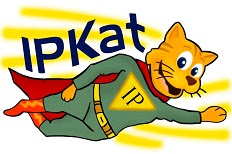
Indigenous Land as a Geographical Indication
‘INPI grants first denomination of origin to indigenous people’
This is the title that the Brazilian Institute Nacional da Propiedad Industrial (INPI) uses for its headlines. My mind started to think of other cases in which a national IPO has recognized in one way or another indigenous peoples and communities. The first, that came into my mind was ‘Tejedurias Wayuu’ [maybe because I love a pretty bag –Xmas list (husband, are you reading this?] (Resolution 71098, 07 Dec 2011) which is a recognized Colombian Denomination of Origin (DO) and it refers to handicraft made by the women from the Wayuu tribe. The second example that came into mind was again from Colombia, the ‘Sombrero Zenu’ (DO) (Resolution 71097 07 Dec 2011) for a hat made by the Zenú Indigenous Reservation [husband, I don't want a hat or a new pot!]. ore in DOs in Colombia here.
Going back to the title and Brazil, the news was a bit different from what I was expecting. Why? you may ask. The Geographical Indication (GI) granted is the name of an Indigenous land and this is something new to me in the recognition of indigenous peoples on GI. In my previous examples, the DOs name refer to the peoples rather than to the land. While GI usually, if not always refers to the link with the region, or better say, the origin in a given ‘place’ - the terroir, the Colombian examples refer to the people.
Moreover, Brazil and more specifically, the INPI is recognizing the ‘Andirá-Marau’ (RPI 2598, 20 Oct 2020) an Indigenous Land as a GI for warana (native guarana) and warana bread (guarana stick). It is the first GI in the form of DO in Brazil to be used by indigenous people, which as noted in my thoughts, refers to the land. Conflicts over indigenous lands and territories have always existed and continue to exist. In this particular GI case, while we may appreciate the recognition of the government and state over the Andirá-Marau Indigenous land, the reality is that there is a pending conflict between the ownership of the area. The area was demarcated in 1982 and approved in 1986, which covers approx. 7,885 square kilometers (3,044 square miles) (Decreto 93.069 - 07/08/1986); Indigenous lands are administratively demarcated by the Fundação Nacional do Índio (FUNAI). Since 2002, the Sateré-Mawé people have asked FUNAIL to correct the boundaries of the Indigenous Andirá-Marau land so that it ‘corresponds to the area they actually occupy’.
The INPI reports
that local biome in the ‘Andirá-Marau’ Indigenous land and the know-how of the
indigenous Sateré-Mawé people play a key role in obtaining a differentiated
product.


















